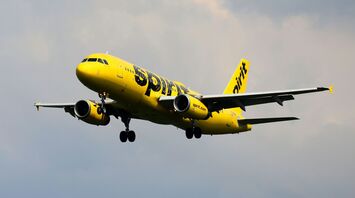Will the FAA's New Junk Fees Rule End Ultra-Low-Cost Carriers?

This week, the Federal Aviation Administration (FAA) introduced comprehensive rules aimed at regulating how and when airlines can charge passengers surprise fees. These new guidelines are part of the Biden Administration’s broader consumer protection initiatives and could significantly impact ultra-low-cost carriers (ULCCs).
The new regulations require airlines to disclose all fees upfront. This includes charges for carry-on bags, flight changes due to family emergencies, and other ancillary services that passengers often find as unwelcome surprises. Previously, many budget airlines relied heavily on these fees, generating substantial revenue. The new rules mean that carriers can no longer increase fees without prior notice or make promises of discounts that are not delivered.
The Department of Transportation (DOT) outlined several key components of these policies. Airlines must now inform passengers about fees for specific services at the time of booking, eliminating the uncertainty that has been a hallmark of the low-cost travel experience. Additionally, airlines must ensure that these fee structures are clearly communicated on third-party booking sites like Expedia and Kayak, where many passengers book their flights.
For members of airline loyalty programs, detailed information on how their fee structure differs from standard fees must also be provided. Moreover, airlines are prohibited from using bait-and-switch tactics, where advertised discounts are only applied to a small portion of the overall ticket price.
These new measures will compel ULCCs like Spirit Airlines and Frontier Airlines to adjust their competitive strategies. Historically, these airlines have offered the lowest possible base fares with numerous add-ons. Moving forward, they will need to provide clear and transparent pricing for all services upfront. For example, Frontier Airlines has already begun restructuring its booking platform to show the total price, including add-ons such as checked bags and seat selection.
Despite these changes, the ULCC business model is expected to adapt rather than disappear. European budget carriers like Ryanair and easyJet have operated under stringent consumer-friendly regulations for years without sacrificing their low-cost appeal. It is likely that U.S. ULCCs will follow a similar path, continuing to offer competitive fares while improving transparency and the overall passenger experience. However, passengers may see slightly higher ticket prices as airlines adjust to the new regulatory landscape.
Ultimately, these regulatory changes aim to enhance consumer protection and transparency, potentially leading to a better travel experience for passengers flying with ULCCs. While the business model of budget airlines will evolve, the core principle of providing affordable air travel will remain intact.



















